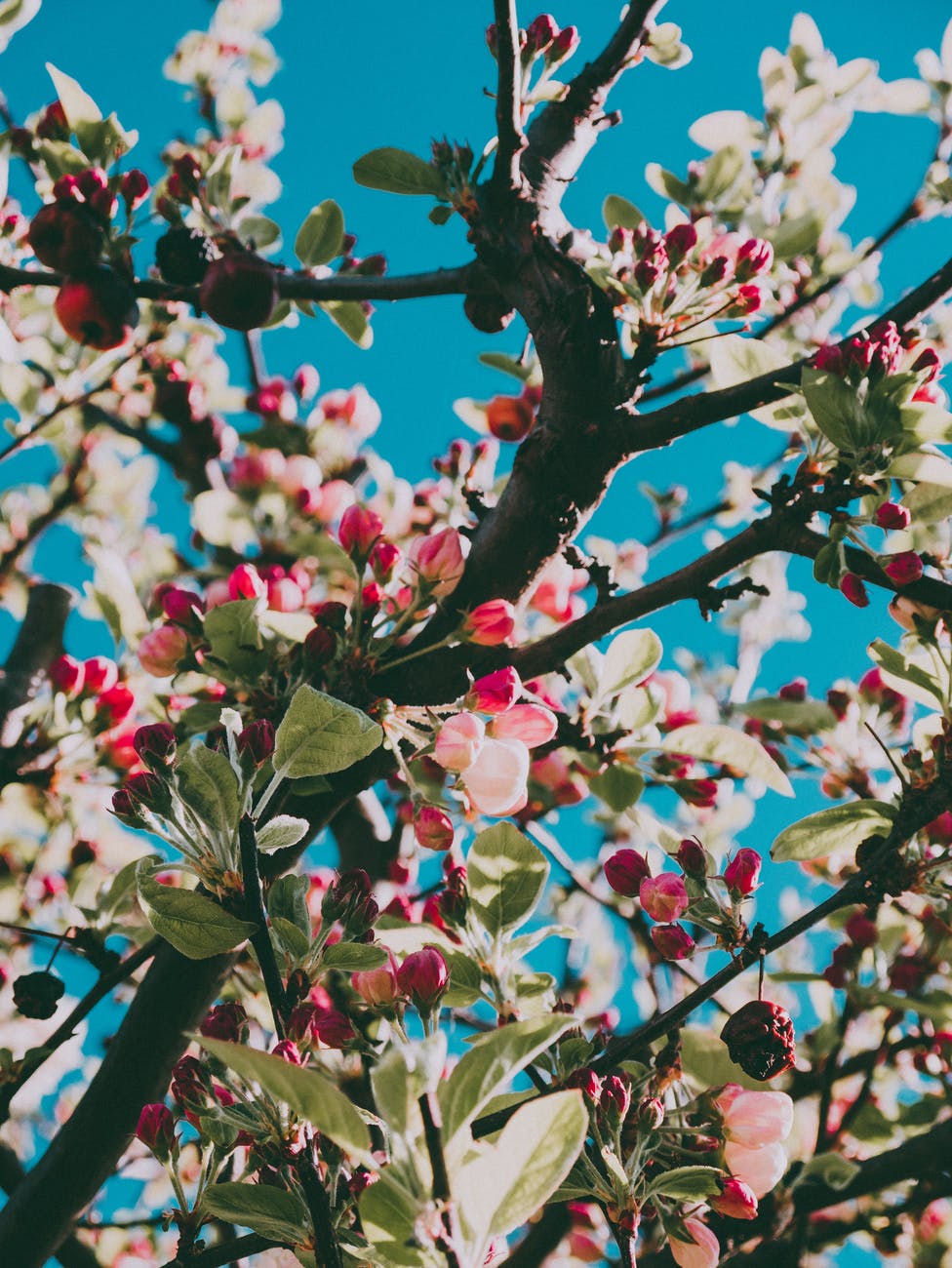While most of us are spending much more time than usual in our homes, the world is in blossom all around us. On our walks around the neighborhood, my son and I have tracked the appearance of the first buds on the trees and flowers peeking up from the ground.
With spring in the air, I am reminded of this passage from Shir HaShirim (2:10-13), Song of Songs, which is traditionally read on Shabbat during the intermediate days of Pesach:
עָנָ֥ה דוֹדִ֖י וְאָ֣מַר לִ֑י ק֥וּמִי לָ֛ךְ רַעְיָתִ֥י יָפָתִ֖י וּלְכִי־לָֽךְ׃
כִּֽי־הִנֵּ֥ה הסתו [הַסְּתָ֖יו] עָבָ֑ר הַגֶּ֕שֶׁם חָלַ֖ף הָלַ֥ךְ לֽוֹ׃
הַנִּצָּנִים֙ נִרְא֣וּ בָאָ֔רֶץ עֵ֥ת הַזָּמִ֖יר הִגִּ֑יעַ וְק֥וֹל הַתּ֖וֹר נִשְׁמַ֥ע בְּאַרְצֵֽנוּ׃
הַתְּאֵנָה֙ חָֽנְטָ֣ה פַגֶּ֔יהָ וְהַגְּפָנִ֥ים ׀ סְמָדַ֖ר נָ֣תְנוּ רֵ֑יחַ ק֥וּמִי לכי [לָ֛ךְ] רַעְיָתִ֥י יָפָתִ֖י וּלְכִי־לָֽךְ
My beloved spoke thus to me, “Arise, my darling; My fair one, come away!
For now the winter is past, The rains are over and gone.
The blossoms have appeared in the land, The time for singing has come; The song of the turtledove Is heard in our land.
The green figs form on the fig tree, The vines in blossom give off fragrance. Arise, my darling; My fair one, come away!
The book is filled with words of love and longing between a young couple, set amidst a natural world in full bloom. The inclusion of what appears to be a book of love poetry in the Hebrew Bible is one that many have found puzzling. Rabbinic and other commentators have often chosen to read the book as an allegory for the love between God and the people Israel, and explain that it is read on Passover as a reminder of that special relationship, particularly as it represented God’s redemption of the people from Egypt. Others suggest that reason we read Shir HaShirim at this time of year is because of its evocation of springtime.
This year, from within the boundaries imposed by social distancing, other aspects of the poem stand out to me. I am particularly struck by the images of confinement and the desire to be free. The two lovers search for one another, longing to connect. They dream of running away and of being free to embrace in public.
The feeling of restriction and of sadness at being distant from those we love is one that many of us can personally relate to this Pesach. There is a tension between what we call “the time of our freedom” and the realities of the world as we experience it right now. At our seders tonight and tomorrow, we will retell the story of moving from slavery to freedom, from Mitzrayim -Egypt, a “narrow place” in Hebrew – to a place of expansiveness. The circumstances caused by the coronavirus might put many of us more directly in touch with the experience of restriction or limitation. Perhaps this opens the possibility of a shift from a simple retelling of our history, to an experience of the present, to seeing redemption as something that has not yet arrived and that we still long for.
Returning for a moment to Shir HaShirim – it is not only a text of longing; it is also profoundly hopeful. In the passage quoted above, the young man invites his beloved to emerge into a new world, after a winter of confinement. He tells her “eit hazamir higia.” While most commentators understand this to mean that “the time for singing has come,” others suggest that it could be read instead as “the time for pruning has come.”
As I have been eyeing the overgrown bushes in front of my house, I have been reading up on gardening and lawn care recently. Pruning, it turns out, is necessary for the healthy growth of trees and bushes. By deliberately cutting back branches at the right time, we encourage new growth and flourishing.
I have begun thinking about this time of social distancing as a time of pruning. To be healthy, to grow and thrive as individuals and as a community, we are strategically cutting back. It is painful in the short term, but my prayer is that this time will also allow us to clarify what is most important and to emerge as something new and perhaps even stronger.
I wish you and your families a meaningful, healthy, and hopeful Passover. We look forward to a time when we are all able to come together to celebrate our freedom as a community.
(Originally sent via email April 8, 2020)
